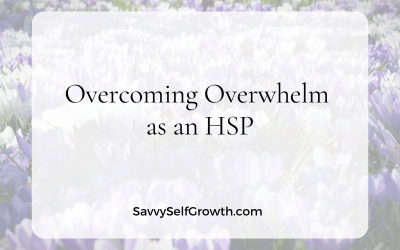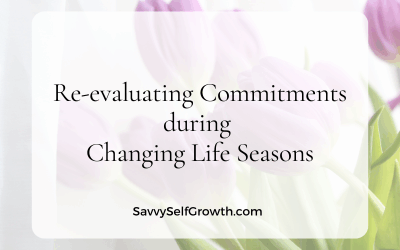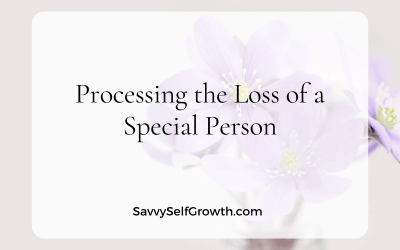 Fear of conflict goes deep for many of us, especially for sensitive introverts.
Fear of conflict goes deep for many of us, especially for sensitive introverts.
Imagine a situation where you did experience conflict. It might have been with a boss, a critical colleague or teacher, a parent, a friend, an intimate partner.
Notice that with all of these, at least one other person had to be present for the possibility of conflict. And likely, it’s a person who didn’t share your point of view about something important.
Take yourself back to that situation for a few moments, just in your mind’s eye.
How did you feel? What did you do? What were your thoughts?
For many people who avoid conflict, the underlying reason is they fear the other’s anger, rage or even just their irritation.
Is this you?
Your thoughts might be something like “This person does not like what I have to say…..” or even “This person will explode if I say what I really want so I’m going to have to keep quiet and keep the peace!”
And GULP, you swallow down what you truly wanted to say because you don’t want to invoke those angry feelings in them. Because they might direct it at you, and scream and shout, make big, angry gestures, and get a red face, and hurt you with words.
What happens in our body as soon as we’re faced with that?
For most of us, fear.
Our reptile brain (the brain stem) interprets it as an immediate threat to our survival. Within milliseconds, the visual of “angry” are sent to a part of your brain that fires off alarm signals to the rest of your body.
The result?
A rapidly beating heart, a desperate feeling that you must get away from this scary situation, perhaps a dry mouth, trembling hands. Your pupils have possibly dilated without you being aware of it – and inside, your body is either preparing to fight or flee by sending lots of blood into your big muscles, and therefore away from your thinking brain.
That means….. suddenly, you can’t think what to say. You stare at the person, lost for words, letting their angry words rain down on you, and you feel defenseless. You might start feeling that clenched feeling in your throat while you desperately try to hold it together. (“Oh no, to top it all I’m going to start crying too…”)
Thinking of this whole uncomfortable chain reaction, I’m not surprised that many of us avoid conflict like the plague.
Who wants to stand there with a mouth full of teeth, while the other person takes all their anger out on us, and because we don’t think fast on our feet, we can’t think of a good reply?
Of course – that night, you ruminate and play the scene over and over and the PERFECT words will pop into your brain – and you’ll keep wondering WHY you didn’t say that!
No wonder, when there’s a whiff of conflict, you might rather turn the other cheek and suppress what you really want so that there would rather be peace in the land.
I understand, because I’ve been there.
People’s anger terrified me too. And I used to say
“I don’t do conflict. If you want a fight, go somewhere else. You’re not getting it from me.”
That got me out of many uncomfortable places, and every time I felt a sigh of relief.
Nice as that might feel temporarily, there’s a problem with this….
I often didn’t get what I wanted or needed. I ended up feeling resentful, and built up feelings about a relationship, or a situation, that popped out at the worst possible time. A bit like a pressure cooker that exploded and splattered its messy contents all over the kitchen ceiling and walls just before visitors arrive….
What can be done to resolve this fear?
If it’s not working for you any longer to run away from conflict, you need two things:
- A way to manage the fear of the other person’s anger and their expression of emotion
- A map for the territory of difficult conversations
It’s crucial to learn a few things about emotions in conflict situations:
- Other people are allowed to have emotions about what happens in their life, just as we’re allowed to have emotions about what happens in our life.
- It’s okay if someone else is angry because their anger is theirs, and not our responsibility to fix.
- We’re not responsible for someone else’s emotions – they are responsible for their emotions.
- We’re only responsible for our reaction to their anger.
- If we keep running away from difficult situations, it’s going to keep cycling back, until we learn how to deal with it. Then it’s no longer an issue, and we can manage all sorts of situations with more ease, calm and poise.
The most effective tool I know of, to manage and handle uncomfortable emotions (like fearing anger), is EFT.
I recommend:
- Watch some of my video’s on Facebook or Youtube, where I demonstrate EFT or tapping.
- Write down exactly how your body reacts when you think of someone being angry at you – what does it feel like in your body, hands, face, feet, mouth, chest? What are your thoughts?
- Think back to a time you encountered a situation like that.
- Whose face can you remember being a really angry face?
- Who shouted at you when you were younger?
- What was the consequence for you if someone else got angry with you?
- Did they withdraw their love? (for a child, that is incredibly painful and threatens their survival)
- Then do a few (many) rounds of tapping with some of your answers. Rate your intensity when you start, and again after you’ve completed your tapping.
Sometimes a few rounds can work miracles, and other times it will take a few sessions to work through all the layers of this. I can almost guarantee that you will make progress and discharge SOME of the fear. So that next time, dealing with a similar situation won’t quite have the same sting and charge.
Here’s what I want to make absolutely clear:
These changes in your body occur at the subconscious level (the brainstem, and the limbic brain). It’s not a conscious choice!
If this is your usual reaction (fear of anger), you’re not doing anything wrong, and you can’t change it by thinking “I’m going to man up and face it next time…”
If you’d love to learn tools to deal with your fear:
In our upcoming course, “How to Have a Difficult conversation with Courage”, Alison Gitelson and I are going to give you a map to navigate difficult conversations with so much more ease.
We’re also going to work together in the sessions to minimize the fear that can make you want to avoid conflict.




